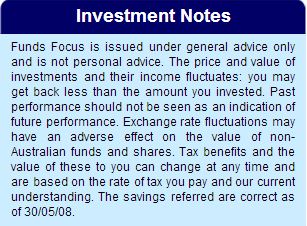With the end of the tax year fast approaching it makes sense to cover some of the tax incentives and strategies available to help you reduce your tax.
Income Splitting
Income splitting is one of the simplest and effective ways of reducing your tax liability. By putting investments into the name of a partner in a lower tax bracket, you can reduce the tax payable on gains and income from that investment.
Pay more into your superannuation
With an ageing population, the Government don not want to be left carrying the can if you retire without enough savings. As a result there are significant tax incentives for both super fund contributions and growth reducing the effective rate of tax payable.
Contributions from pre-tax income pay only get taxed at 15% rather than your income tax rate of up to 46.5%.Rather than being taxed at your highest rate of income tax (up to 46.5%), tax within the fund is limited to 15%.
Borrowing to invest & margin lending
Interest and investment expenses are considered a legitimate tax deductible expense for investment and margin loans and makes these products an attractive source of funds for investment.
Interest and investment expenses are considered a legitimate tax deductible expense for investment and margin loans and makes these products an attractive source of funds for investment.
Using unlisted direct property to defer your tax liability
Investing in an unlisted direct property trust provides many tax advantages due to the significant building and depreciation allowances on new buildings. These tax advantages are effectively passed on to investors as tax deferred income. This provides cash flow benefits because tax deferred income is generally not taxable when it is received, but is deferred until the investment is sold.
Investing in an unlisted direct property trust provides many tax advantages due to the significant building and depreciation allowances on new buildings. These tax advantages are effectively passed on to investors as tax deferred income. This provides cash flow benefits because tax deferred income is generally not taxable when it is received, but is deferred until the investment is sold.
Due to the significant building and appreciation allowances on new buildings, unlisted direct property funds in many cases offer a tax deferred income to investors. ie tax is not immediately payable on the income, but deferred until the investment is sold.
Gearing into property trusts/investment property with high levels of tax deferment allows you to claim the full cost of the interest on the investment loan whilst not having to pay tax on the deferred income until the asset is sold.
Agribusiness offer both tax deductibility and returns independent a falling market
Agribusiness schemes with a tax ruling are 100% tax deductible to encourage investment in agricultural production in areas such as almonds, grapes and forestry. As an asset class with no correlation to the share market, this can be used as an effective diversifier but can be a relatively long term investment.


Comment: